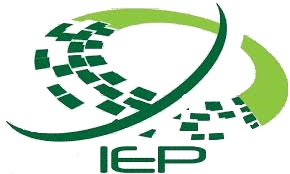
Paper Title: Shifting the Paradigms in Waqf Economics: Towards Renewed Focus on Socioeconomic Development
Author: Abdullahi Abubakar Lamido and Mohamed Aslam Haneef
Publisher: Islamic Economic Studies, Vol. 29 No. 1, 2021, 18-32
This paper discusses that the socio-economic aspect of Waqf is much less focused upon in research studies. More focus is on jurisprudential and legalistic studies. While they are important, it is also vital to discuss and pay attention to socio-economic aspects of Waqf in Waqf economics.
However, the past one decade has witnessed a renewed interest in Waqf research with relatively more focus on socio-economic aspects as compared to before.
Waqf served as a viable mechanism for the provision of all forms of public welfare services in Muslim civilization. It grew to become a source of inter-civilizational exchange between the Muslim society and the rest of the world. The Waqf was transformed into trusts. Pooling capital resources on commercial basis gave birth modern corporations.
Waqf had been used for building road networks, bridges, hospitals, soup kitchens, libraries and laboratories, schools and universities, research centers, water wells, orphanages, street lights and other infrastructure that have direct bearing on developing the economy and improving well-being.
Waqf is not only for the temporary boosting of consumption and lessening starvation, but also for creating capital, uplifting entrepreneurial skills and achieving economic empowerment through training and education.
Discussing about the socio-economic dimension of Waqf is what is connected to the end. Therefore, Waqf should be seen as an organized socio-economic development institution, governed by the Islamic legal, jurisprudential and economic principles. It is a philanthropic institution administered for the purpose of uplifting people’s living standards through sustainably addressing their needs, building their earning capacities and enhancing their general socioeconomic wellbeing.
Primary reasons behind why Waqf became less relevant include declining focus by the colonialists in developing Waqf. In countries like Egypt, Turkey, Algeria, Tunisia and Pakistan, new government policies submerged Waqf assets with government properties and led to the distribution of vast Waqf properties through land reforms and other government programs.
The authors contend that rather than waiting for legal reforms and mega Awqaf with support of government or development finance institutions, there is need for indigenous efforts by mobilizing local community. Micro Awqaf established by individuals, groups and corporate bodies can be an important stepping stone to reducing poverty and establishing the Waqf culture in poor communities. Finally, the authors also suggest that future researches in Waqf economics need to focus on surveys to document footprint of Waqf properties and assets. This can help in planning and effective allocation of social services through Waqf. Furthermore, there is a dire need for performance based studies looking at the aspects of efficiency, impact, risk and sustainability.
Categories: Research Paper in Focus

